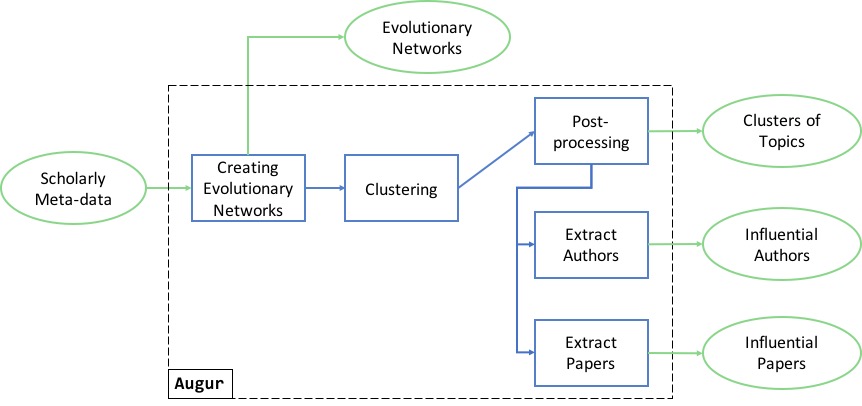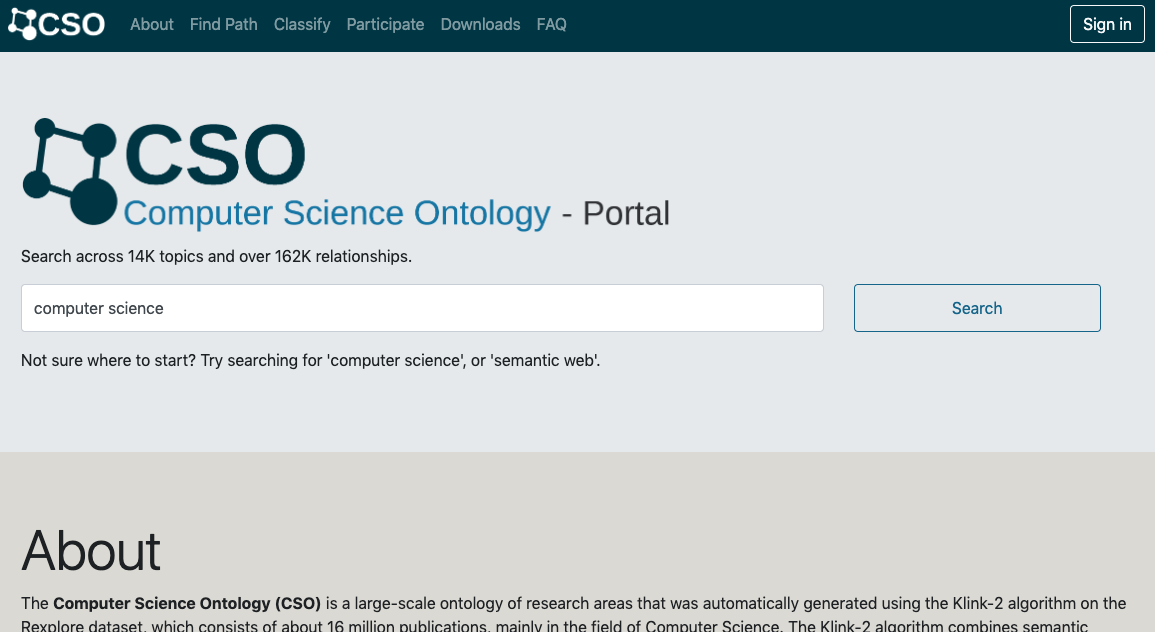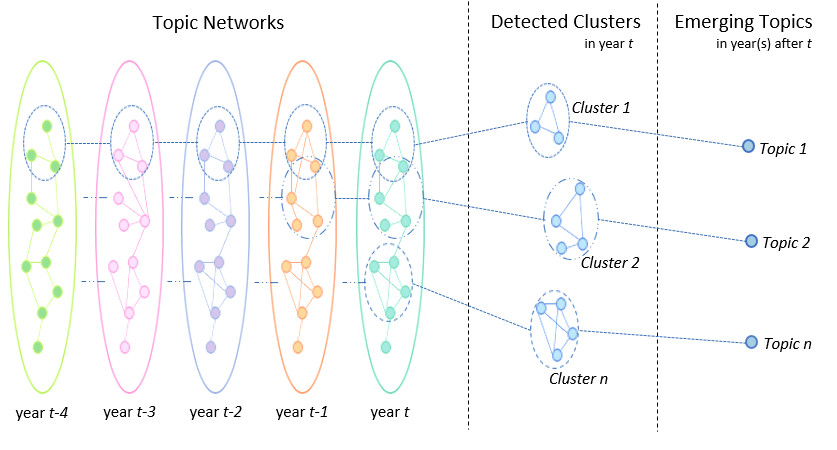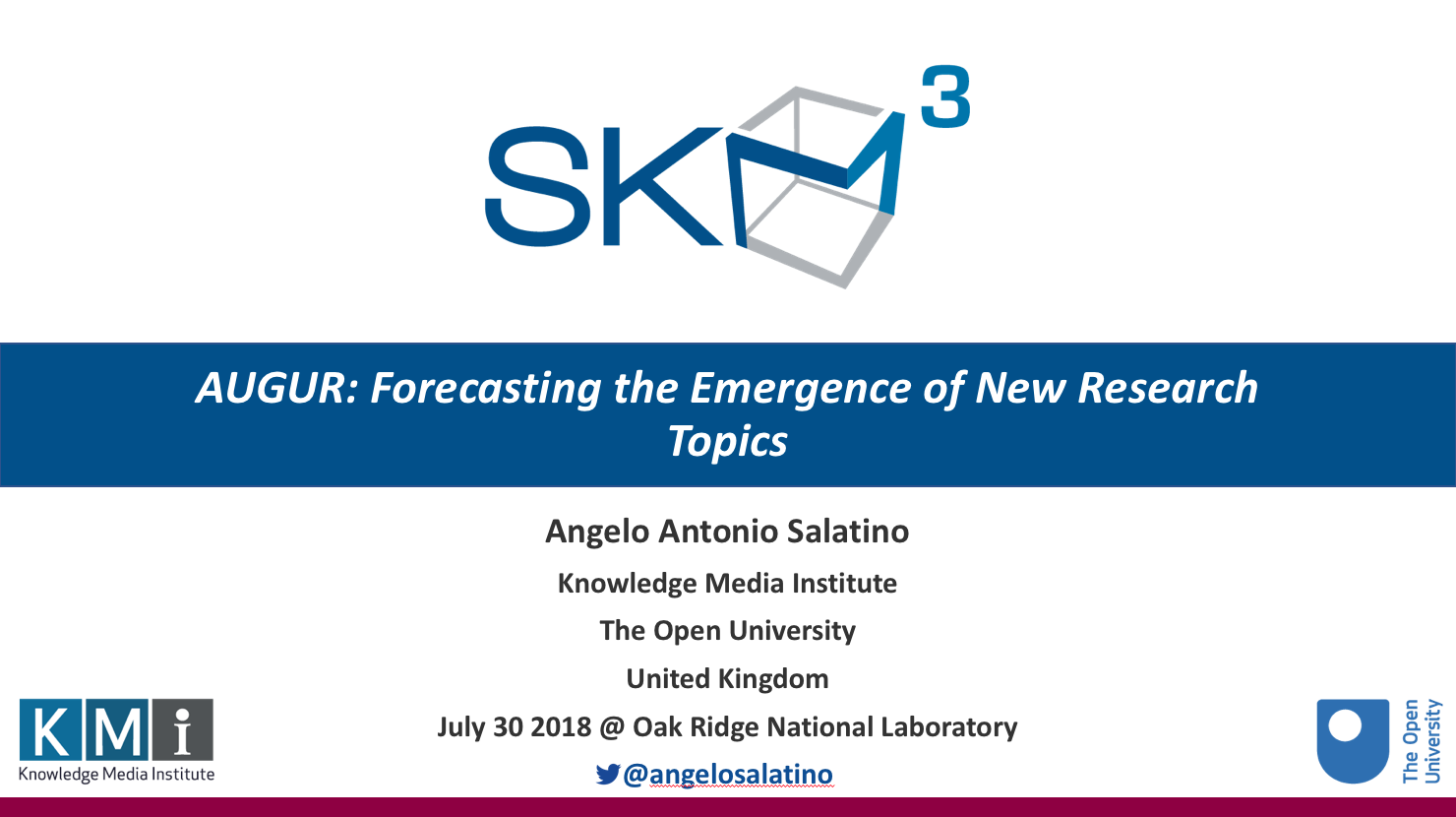On 30th Jul 2018, I have been invited from Dasha Herrmannova, former PhD student at the KMi, to give a talk at the “Machine Learning and Graph Mining for Big Scholarly Data” workshop organised for the Computational Data Analytics Group at Oak Ridge National Laboratory (ORNL). In this talk, named “AUGUR: Forecasting the Emergence of New […]
Category: Network Science

Springer Nature Hack Day – Berlin
On 26-27 April 2018, Francesco Osborne and I attended the third edition of the Springer Nature Hack Day, which was held in its headquarter in Berlin. The Springer Nature Hack Day is an event that allows researchers, developers, tech companies, and Springer Nature itself, to gather together and tackle current research issues. Offering also opportunities […]

AUGUR: Forecasting the Emergence of New Research Topics
“AUGUR: Forecasting the Emergence of New Research Topics” is a paper submitted to the ACM/IEEE Joint Conference on Digital Libraries 2018, presented on June 5 2018, in Fort Worth, TX, USA Angelo Salatino, Francesco Osborne and Enrico Motta Abstract Being able to rapidly recognise new research trends is strategic for many stakeholders, including universities, […]

Computer Science Ontology Portal (or simply CSO Portal)
The Computer Science Ontology Portal (also referred to simply as CSO Portal) is a web application that enables users to download, explore, and provide granular feedback on CSO at different levels. This last feature allows us to periodically review the status ontology and release new version according to the received feedbacks.
Springer Nature video
Couple of months ago, with my team, we attended the Springer Nature HackDay (here is the post). Just not long ago, Springer Nature released a short video featuring us. Summarised is also my interview, in which I discuss the advantages of making scholarly datasets, as SciGraph, available to anyone. Other media Building on the success […]

SpringerNature Hackday – London
On the 29th November 2017, myself with two KMi colleagues (Andrea Mannocci and Thiviyan Thanapalasingam) attended the second edition of SpringerNature HackDay in London (@ SpringerNature Campus). Aliaksandr Birukou, Executive Editor of Computer Science at Springer Nature and collaborator of our research team at the Knowledge Media Institute, also joined our group on the HackDay. The whole […]

Early Detection of Research Trends
Being able to rapidly recognise new research trends is strategic for many stakeholders, including universities, institutional funding bodies, academic publishers and companies. The literature presents several approaches to identifying the emergence of new research topics, which rely on the assumption that the topic is already exhibiting a certain degree of popularity and consistently referred to by a community of researchers. However, detecting the emergence of a new research area at an embryonic stage, i.e., before the topic has been consistently labelled by a community of researchers and associated with a number of publications, is still an open challenge.



